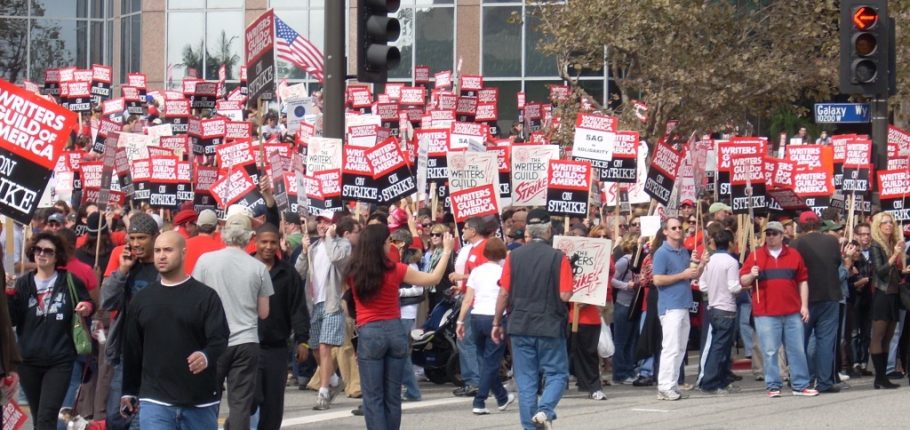
Why Another Writer’s Strike Would Have Been a Very Big Deal
The last time the Writers Guild of America went on strike the Hollywood machine suffered greatly. Shows like Heroes and Battlestar Galactica took massive dips in quality. Films such as Men in Black 3 and X-men Origins: Wolverine were put into production with almost no script, and the finished products were very telling to say the least. Thankfully, we narrowly avoided another writers’ strike. The Guild was previously vying with the studios for healthcare funds, residuals rights, and the amounts at which things like new media and short run TV shows will pay their writers additional funds.
The negotiations took place right down to the wire. In fact, over the wire. With a midnight deadline, the negotiations extended well into the early morning of Tuesday, May 2nd. If the parties involved hadn’t reached an agreement by then, well, things would have gotten a lot rockier. Thankfully, that didn’t happen-whew!
The threat of strike was a big deal for major studios and networks due to the fact that so much of their content is scripted. Yes, reality TV is still the beast that will not die, but the studios are riding high off of the Peak TV idea. All of the shows that are currently winning awards and pulling in high ratings are scripted, original programming. They’re shows that require an extensive writers staff, and this means that those writers need to be paid. It’s just a simple matter of fact.
The last time these negotiations happened, during the 2007-2008 strike, they resulted in large financial shortcomings for the studios. Thanks to a recent study, it’s estimated that the studios would endure nearly 100 to 125 million dollars a year for the next five years in damages if the strike had exceeded three months. The last time there was a Writers Guild strike it lasted for roughly three months and writers and artists everywhere are still feeling the fallout from that strike nearly a decade ago.
The fact that the previous strike was sparked in large part due to new media residuals sharing was a prescient move on the behalf of the WGA. In 2007, Amazon, Netflix, and Hulu didn’t exist in their current capacity. However, today they’re arguably the primary way most people consume their entertainment. Today, more than ever, it feels like the future of film and television is in the digital realm. That’s just thing the Guild was fighting for with the second biggie being assistance from the studios to pay for their healhcare plans.
It must be noted, lest we forget, that a writers’ strike would have had a massive trickle down effect on just about everyone working in and with Hollywood. Aspiring actors would be brushed aside by wellknown actors who would have to move down a rung or two. Producers would be scrambling for great, non-union talent. Sound mixers would have to do the same and opt for work they usually bypass. Even restaurants near the studios would have felt the crunch of a strike. Perhaps only aspiring writers would have benefitted by the strike but few of us want to start our careers as a scrub.
Even though the writers and the studios were able to come to a point of agreement, this is not the last time there will be the liklihood of a strike. With the ever-changing landscape of film and media in general, it’s important that artists stand up for their rights and collectively work together to receive compensation for their work.
While it may seem obvious that a strike is about the worst thing that could happen, since it would undoubtedly wreak havoc on just about everyone involved. Nevertheless, writers deserve the right to negotiate for what they deem a fair deal. Thanks to a great negotiating team, everything worked out this time and we can all rest assured that it’ll be business as usual, for now. Whew!



